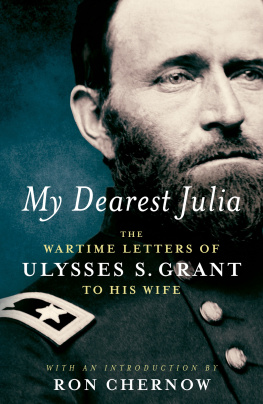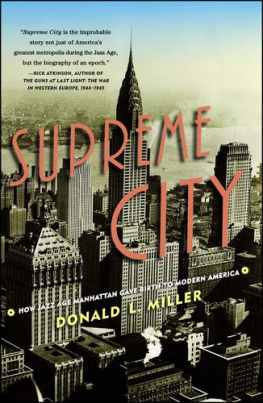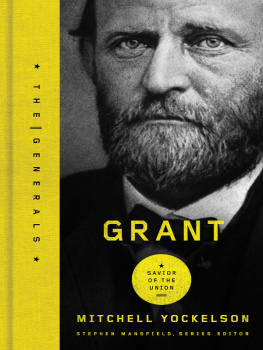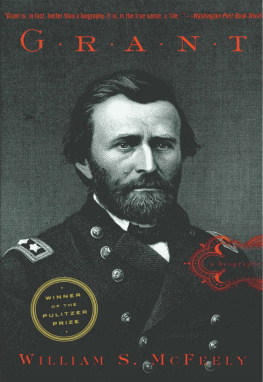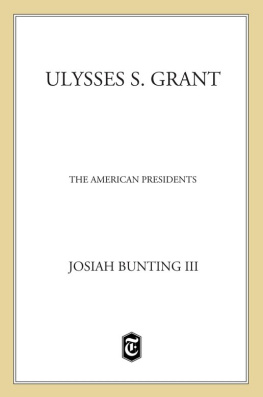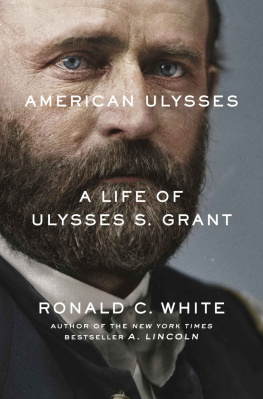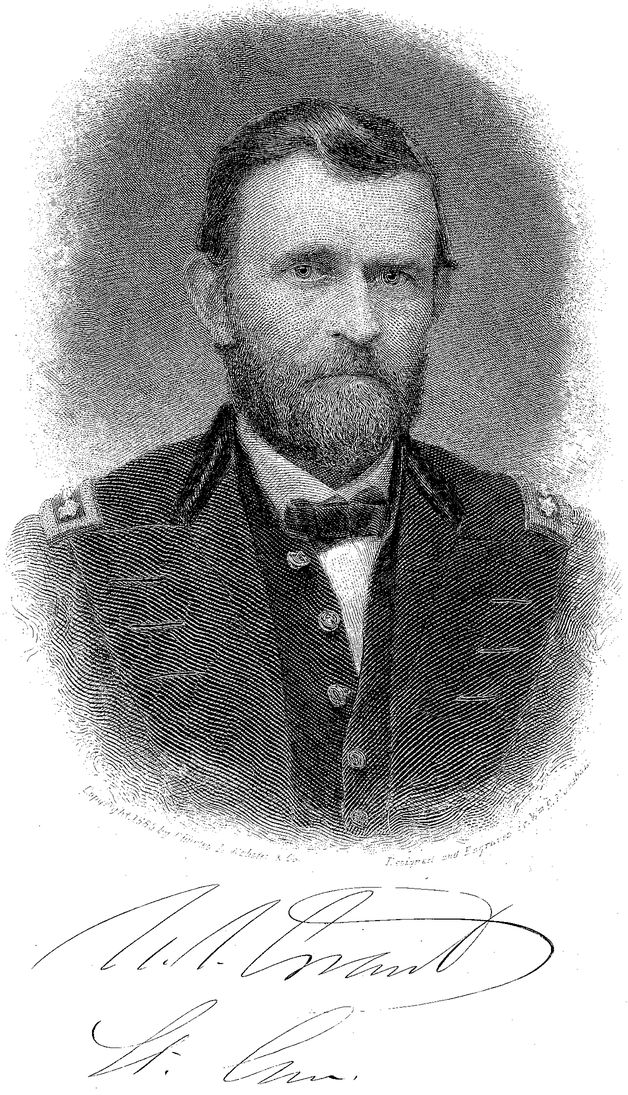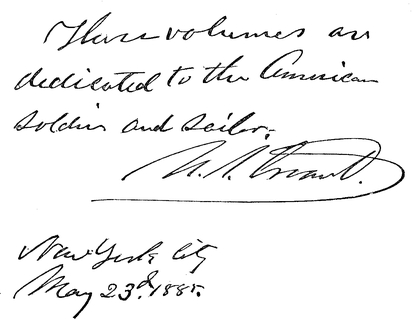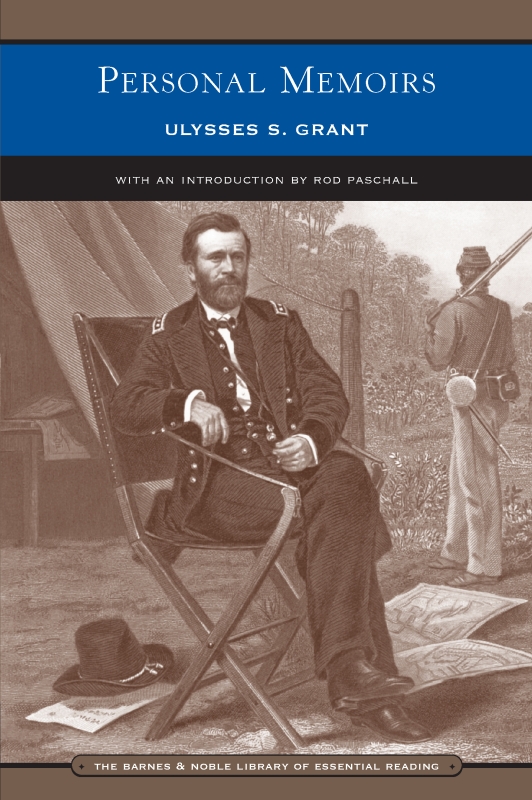
Table of Contents
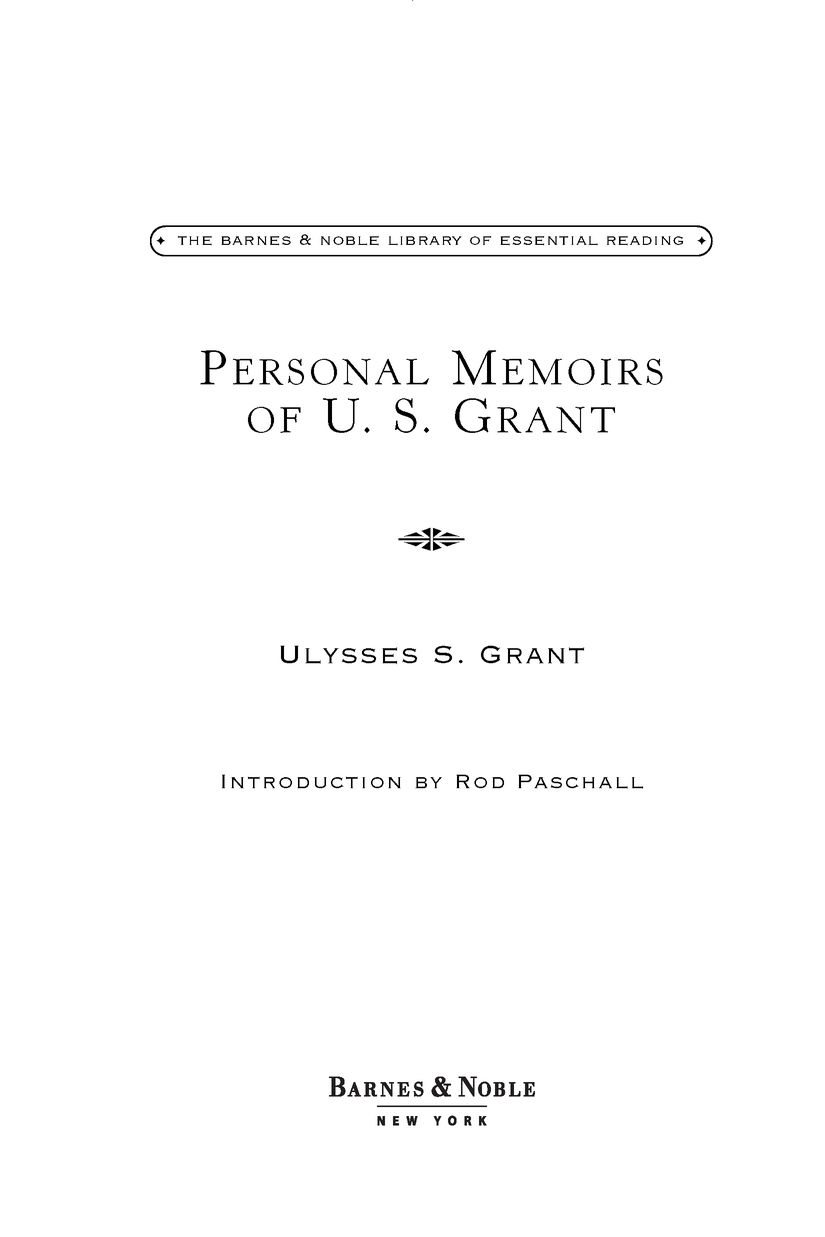
The facsimiles of General Buckners dispatches at Fort Donelson are copied from the originals furnished the publishers through the courtesy of Mr. Ferdinand J. Dreer. General Grants dispatch, I propose to move immediately upon your works, was copied from the original document in the possession of the publishers.
INTRODUCTION
AFTER THREE DEADLY YEARS OF FIGHTING, PRESIDENT ABRAHAM Lincoln had seen a little progress in the West against the Confederacy, but in the main theater of operations, Virginia, the lines were almost exactly where they had been when the American Civil War started. The war was at a stalemate with northern public support rapidly fading. Then, Lincoln summoned General Ulysses S. Grant to come East. In little over a year, Americas most catastrophic armed conflict was ended, the Union was preserved and slavery abolished. This book details how these triumphs were achieved and in the telling earned international acclaim as a superb example of an English-language personal chronicle. U. S. Grants Personal Memoirs constitutes a vital historical and literary classic. The book provides the reader with an understanding of the most perilous four years in United States history and the best model for an entire genre of literature.
Born Hiram Ulysses Grant in 1822, he remains one of the giants in American history, revered and respected by his contemporaries, but viewed ever after as one of the countrys most enigmatic and controversial figures. Of modest, small-town midwestern origins, he graduated from West Point in 1843 and was promoted for bravery during the Mexican War, a conflict he denounced. He rose to command of the U.S. Army during the Civil War and served as the 18th President of the United States for two terms. All these grand accomplishments stand in stark contrast with his equally enormous failures and disappointments. He was forced into a military career by a father he disliked. As a cadet at the military academy, he hated the institution so much he hoped for its abolishment. He became an alcoholic in the early 1850s and a failed businessman and farmer. As president, his administration is regarded as one of the most corrupt in U.S. history. He lost his life savings in the 1880s and fell heavily into debt becoming dependent on friends and family for handouts. While other prominent Americans look to publishing their recollections as a crowning event undertaken in the leisure of retirement, Grant had to write his 1885 memoir as a means to pay his debts and feed, clothe, and shelter his family. Few Americans have reached such highs--or plunged to such lows.
Grants reputation was shaped by some notable personality traits and habits. The handful of contemporaries who had disparaging things to say after first meeting him were usually put off by the generals silence following the initial greeting. He was naturally shy and reserved in such encounters and rarely spoke more than a courteous and sometimes formal salutation preferring the other party to carry the conversation. Some incorrectly took this behavior as indicating a lack of intellect and knowledge. Among long-time friends and acquaintances, he was altogether a different man, talkative, amusing, and occasionally showing his characteristic dry wit. Also, Grant was not a physically striking figure. He was only five foot seven inches tall. While many officers of his era adorned themselves with professionally tailored uniforms, brilliantly colored sashes, and fancy swords, Grant was typically unarmed, wore a standard drab soldiers coat decorated only with the government-issue shoulder boards appropriate to his rank. He was trusting of others to a fault. Grant displayed no guile and was remarkably honest. Unfortunately, he often assumed others were the same and was consequently often deceived and cheated. He was also a voracious reader of books and newspapers but only revealed his knowledge when it was called for by the occasion, never to make a favorable impression. It is understandable why some of those who only briefly knew him characterized Grant as ignorant and slovenly.
Nothing led to more controversy about U. S. Grant than his reputation as a drunkard. In modern terms, he was a managed alcoholic. A majority of comments and memories on the subject from sixty-nine of his friends and acquaintances place the beginning of serious problems during an 1852-1854 tour of duty as an Army captain in California. The causes are generally ascribed to his having to leave his new wife, Julia, behind in the East as well as the monotonous nature of the assignment. Lonely and bored, Grant turned to the bottle for solace. His deportment was bad enough to merit the threat of embarrassing disciplinary procedures. Rather than face humiliation, he chose to resign his commission. Once he returned to his wife, commentary about his drinking to excess became infrequent. Forty-six of his friends and acquaintances remember Grants Civil War and White House years as periods where he shunned alcohol for three to four months at a time and was never was out of control when serious matters were at hand. Twenty-three take a different view, saying Grants addiction to drink was an occasional debilitating factor. However, almost all agree that during those highly public years, Grant was usually under the observation and direction of his wife or his nagging chief of staff and friend, John Rawlings. In those conditions, U. S. Grant was almost always cold sober. Additionally, the majority of his friends and acquaintances state Grant rarely drank much alcohol. But, they agreed that only a small amount made him intoxicated. Those closest to him stated that Grant could snap out of an alcohol-induced stupor after little more than an hour or two of sleep.
Perhaps the final word on Grants drinking should come from the man who had the most to do with making him a leading national figure and the bearer of awesome responsibilities. Abraham Lincoln heard all the stories about Grant before promoting him to Lieutenant General. But the president also took note of Grants accomplishments in the preceding three years. In 1864 a few months after putting Grant in command of Union forces, Lincoln said that Grant was the only real general that he had. The rest of them had demanded the impossible from the White House. The president said that he did not know Grants plans and did not want to know. He knew Grant would take the necessary actions to defeat the Confederacy. Alcoholic or not, Lincoln knew that Grant was a winner.
The chief cause of the mystery and mixed opinions about Grant is that different generations of Americans have viewed him in dramatically different ways. For most of his contemporaries, Grant was the kind, considerate, and just general and president. Ex-Confederates were surprisingly cordial toward him. In one telling post-war incident, Robert E. Lee admonished and embarrassed a man who began denouncing Grant. The ex-Confederate commander said that he would not permit such remarks about Grant in his presence. The most widely circulated southern publication among Confederate veterans printed nothing unkind or critical of Grant. Union veterans were overwhelmingly favorable to their former commander despite a few voices in the North claiming Grant had been reckless with his soldiers lives at the battles of Vicksburg, the Wilderness, and Cold Harbor. However, as the generation that knew him began passing away, Grants reputation dived. Much of the cause of this phenomenon had a decidedly political foundation. In the late nineteenth and early twentieth centuries the Democratic Party began rebounding after its disastrous flirtation with slavery interests. Americans were often reminded of the Grant Administrations corruption. At the same time, the reputations of Abraham Lincoln and Robert E. Lee were steadily burnished and Grants repute suffered in the comparison. But the trend in opinions reversed in the 1960s. The Civil War centennial ushered in a new era of scholarly works about the conflict and its central personalities. As accurate, fact-based, and well-reasoned books were written, Grants stature grew as his admirable accomplishments were revealed. His reputation has been on the upswing ever since.
Next page

